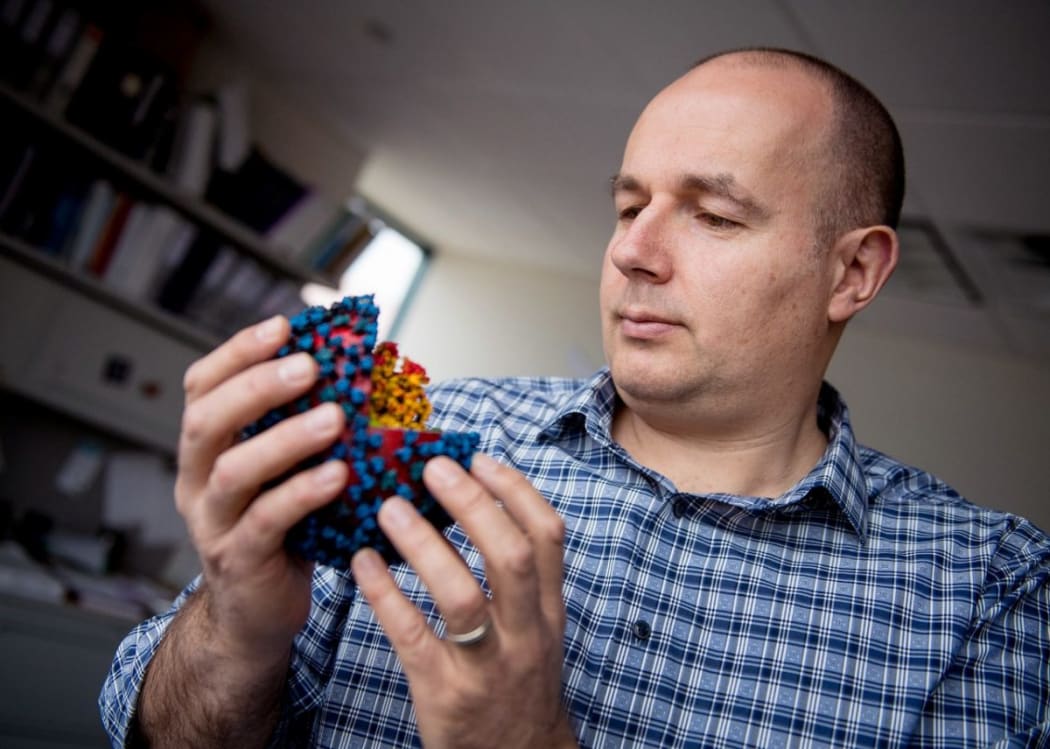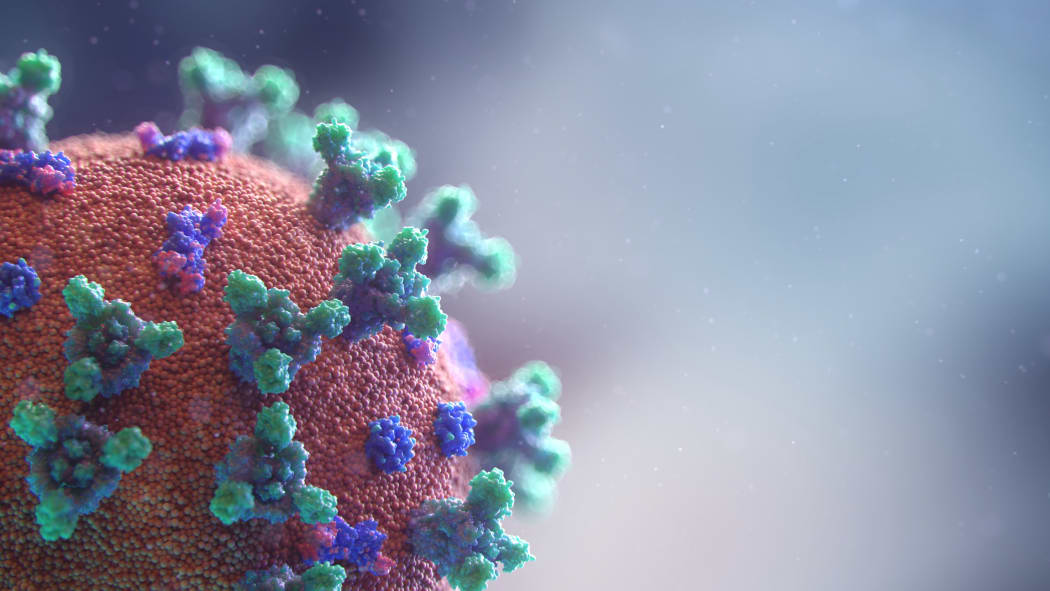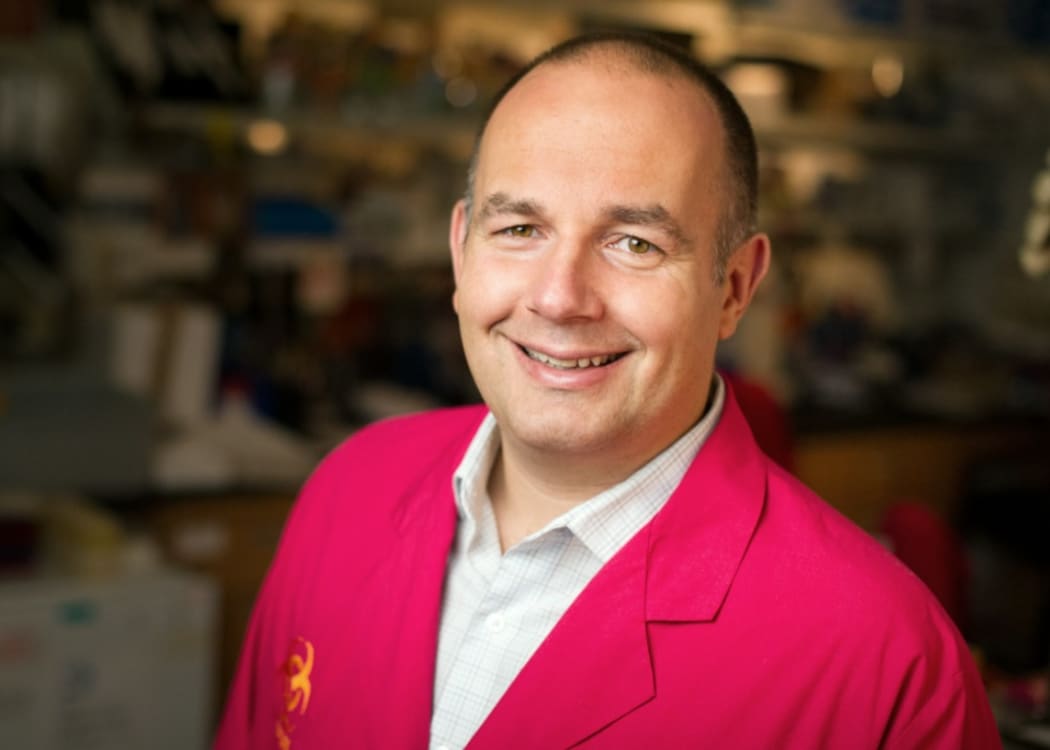"The Coronavirus is here forever. This is how we live with it"; That was the rather foreboding headline from a recent article in The Atlantic which quoted leading medical authorities, including New Zealander Dr Richard Webby.
An infectious disease researcher at St Jude Children's Research Hospital in Tennessee, Dr Webby knows a thing or two about big, bad diseases, having been an early responder during the 1997 Hong Kong avian flu outbreak (for which he later developed a vaccine).
And he's the director of the WHO's Collaborating Centre for Influenza studies.
He joined Sunday Morning from Memphis to talk about what life could be like with Covid-19 among us - and the safe bet we're all going to catch it eventually.

Photo: Supplied/St Jude Hospital
"Sooner or later we are all going to get this thing. Whether it's today, tomorrow, next year or a few years, we're not sure, but it's definitely coming."
In that case is an elimination strategy the right thing to do?
"I think it is. The way New Zealand has done this is definitely the right way to go.
"There's been struggles and lockdowns and shutting shop, but in between those lockdowns it's been pretty free life. And no-where else in the world has really had that, so absolutely it's the way to go."
However he says the big-picture result is likely to be outside our control.
"Elimination's worked for New Zealand on and off, but as a global strategy it's not a starter, so this virus is going to be with us forever. At some point... I think this is going to end up like a common cold or flu scenario, where we have to deal with it during winter.
"It may end up putting people in the hospital every year, but as a healthcare infrastructure and as a society those are things that we're a little more able to deal with, and I think that's the point we'll get to with this."

The Covid-19 virus; SARS-CoV-2. Photo: Unspla
What about New Zealand's strategy of attempting to flatten the curve, trying to even out the case numbers long-term so medical resources can cope with the caseloads?
Webby says even if the virus is normalised, it will still be desirable to control spikes in cases.
"We're going to continue to have outbreaks and epidemics of this virus probably forever, but so long as those curves are not spiking it's something that overall as communities we can deal with."
Experts have debated whether the coronavirus will continue to have such devastating effects, or whether the severity could reduce over time - a concept known as attenuation.
Webby says there's no clear indication of how the virus that causes Covid-19 will behave in the future, but based on how other coronaviruses have behaved previously there's good reason to think attenuation is likely.
"We have these four other coronaviruses circulating in humans that cause us common cold-type outbreaks.
"At one stage they started their life exactly like [Covid-19], they probably came over from animal reservoirs, and almost certainly caused a spike in disease when they first circulated, but then settled into this more winter-sniffle-type cold scenario. I don't see why this particular coronavirus would be any different.
"But that's not a view shared by all experts, and some think this virus may have a little bit more of a kick in it than some of those other coronaviruses."
Viruses have the trait of changing over time by adding other viruses' genetic material to their own - called recombining. But Webby thinks recombining is more likely to make the Covid-19 coronavirus more tame, rather than more severe.
"Recombination is a mechanism that these viruses use to evolve, it's likely to happen. But the source of genetic material are these other common-cold coronaviruses.
"Over the long-term evolution of a virus with it's host, it tends to become less nasty rather than more nasty. If you're killing the host that you're in, if you're a virus, that's not really the place you want to be. "

Dr Webby Photo: Supplied
Webby says there's no doubt that right now the Covid-19 coronavirus is much deadlier and makes more people sick than the flu, but it's likely we'll see that change. And that as population immunity builds, the case fatality rate will lower; "I'm personally thinking that it will probably drop below [the damage] flu does."
He doesn't think the Covid-19 virus is as quick to evolve as flu has been.
"Yes, we're getting all these variants of [the Covid-19 coronavirus], but if you look at the mutations, the actual changes that all these variants are making to their genetic makeup, they're actually using some of the same mutations over and over again, but just in different combinations.
"So that give me a little bit of hope that this virus doesn't have the same capacity to change and keep on running ahead that the flu does.
"So I think if we come back and have another chat in two or three years that we're going to find this virus not having the same impact it's having now, and I would say [it'll be having less impact than flu."
But when we're considering how society might live with the virus in the future, one thing we don't yet have a handle on yet is the long-term effects - known as 'long-Covid', Webby says.
Previously, Webby co-authored a paper in Nature Communications, recommending that New Zealand start looking at border controls for seasonal flu, which we don't currently have, even though some 500 people die of flu each year in New Zealand. Is it practical for a society to have ongoing border controls to mitigate against disease?
"Closing borders - I don't think it is. We can do this one-off, two-off for a year, maybe a couple of years. Anything longer than that is not really practical," he says.
"But is there things that can be done, whether it be more intensive temperature checks, monitoring people on flights, even educating people on flights when they're coming in during times of disease - just managing it."
He hopes the pandemic will leave us more aware and more proactive about simple disease control measures.
"What I'm hoping is one of the outcomes of this pandemic is that people get a little bit more sensitive to the fact that if you are sick and ill and have a cough or a sniffle, you've got something that you're likely to transmit to someone else.
"I think before people probably knew it, but didn't take much notice of it. But now I'm hoping that when people get those coughs and sniffles they're more likely to stay at home, they're more likely to even put a mask on if we're lucky.
"I think we're going to head back to basically normal. But I think there will be some longer-term consequences of this pandemic and how we think about it when we're sick or others around us are sick."

